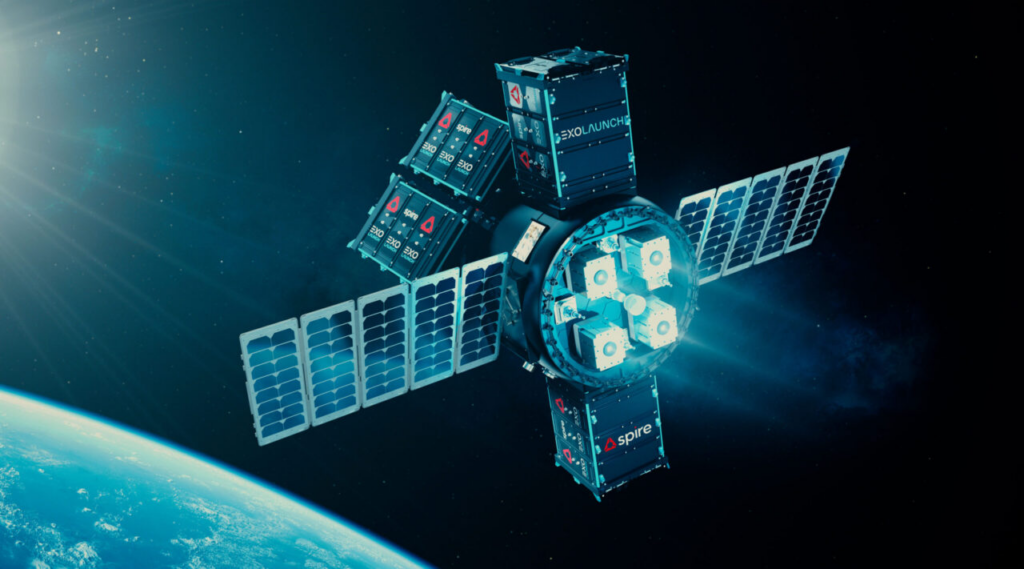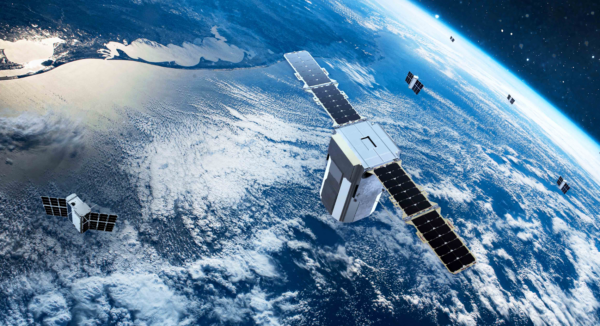Spire Worldwide, a prominent worldwide supplier of space-based data, analytics, and space services, launched three satellites on the SpaceX Transporter-7 mission from Vandenberg Space Force Base, a military spaceport 140 miles (225 km) northwest of Los Angeles.
SpaceX launched a Falcon 9 rocket from California on April 14 carrying 51 small satellites, payloads, and orbital transfer vehicles from clients across the world after many delays due to weather.
Spire launched a satellite for King Abdullah University of Science and Technology (KAUST) to collect high-quality, high-resolution data from worldwide terrestrial, coastal, and ocean ecosystems and assess natural resources.

Spire deploys satellites for customers to monitor Earth and debris.
Spire’s Global Navigation Satellite System-Reflectometry (GNSS-R) sensor payload and the 6U satellite’s hyperspectral camera with enhanced on-board processing will gather soil moisture data.
KAUST researchers will compile and analyze high-resolution imagery to map terrestrial habitats, monitor vegetation health and condition, explore coastal ecosystems and coral reefs, advance agro-ecological research, and many other Earth and environmental science applications.
“Working with Spire allowed us to fast-track our satellite mission, which will provide unique insights to monitor, protect, and preserve precious terrestrial and ocean systems in Saudi Arabia,” said KAUST Climate and Livability Initiative Director Matthew McCabe.
ADLER-2, a second satellite created by the Austrian Space Forum (OeWF), a national space research body, and Findus Venture GmbH, an Austrian space technology investor, was launched by Spire.
ADLER-2 continues ADLER-1’s mission to research low Earth orbit (LEO) space debris and atmospheric clouds and aerosols. ADLER-2 has three payloads: two to track orbital debris and one to evaluate air quality worldwide.
We must swiftly handle space junk. Dr. Gernot Grömer, Austrian Space Forum Director, remarked, “We need a better overview of Earth orbit to develop solutions.”

Spire launches Earth and debris monitoring satellites for clients.
Spire’s Space Services arm, with a $39 billion total addressable market, lets organizations deploy and scale their own satellite constellation quickly and reliably through a subscription model that eliminates the high upfront cost of building and maintaining space infrastructure.
Spire’s established infrastructure lets businesses and governments launch and operate a constellation of satellites, a hosted payload, or a software application in space.
“Our goal is to simplify space and make it accessible so that anyone can benefit from the insights and intelligence that can be gleaned from the ultimate vantage point,” said Frank Frulio, General Manager of Spire Space Services.
“KAUST and ADLER-2 are prime examples of satellites from organizations that have leveraged our platform to build space-based applications and gather intelligence to promote sustainability on Earth and beyond.”

